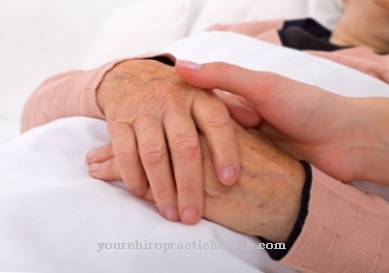Gasping refers to a severe breathing disorder that often precedes respiratory failure. It is characterized by snapping breaths with pauses in between. The lay person often does not recognize gasping during resuscitation as threatening, but it can be fatal.
What is gasping?

The gasp breathing is a life-threatening breathing disorder that occurs due to a lack of respiratory drive. It is characterized by pauses in breathing and short, snapping breaths, which usually occur very close together. Most of the time, these breaths occur individually and several seconds apart.
However, the longer the pauses between the individual, snapping breaths, the more threatening the condition can become. On the one hand, because breathing could always come about, which is usually heralded by gasping. On the other hand, because in this case the brain is not supplied with sufficient oxygen.
What is explosive is that gasping for breath is still not recognized as such by most laypeople and is therefore not perceived as threatening. Often the gasp is classified as a sign of excitement, for example, and the person concerned is only asked to calm down. For this reason, action is usually only taken and the emergency call dialed when there is a threat of respiratory failure or has already occurred.
causes
Gasping for breath can have many different causes. A common cause can be, for example, previous long holding of breath, for example while diving. In cases like this, the body reacts to a lack of oxygen by gasping and trying to maintain vital functions through rapid breathing.
In normal and harmless cases of gasping, the condition of the person concerned and thus the breathing normalize again very quickly. Because normally the body regulates breathing back into a normal rhythm when there is no longer a lack of oxygen.
In addition, various drugs can also trigger gasping. Most of the time, however, this is mentioned in the side effects or is triggered by an overdose. Gasping for breath occurs particularly frequently, for example, when an overdose or an improper use of opiates occurs. The reason for this is the existing poisoning, which in turn can lead to shortness of breath and thus gasping.
However, organic causes can also trigger gasping. Acute or chronic lung diseases are relatively often the cause that the breathing is impaired or influenced and thus brought out of rhythm. In addition, the breathing disorder can also be triggered by heart problems (such as heart failure) or cardiovascular diseases.
You can find your medication here
➔ Medication for shortness of breath and lung problemsDiseases with this symptom
- Lung disease
- Heart failure
- Cardiovascular diseases
Diagnosis & course
A gasp can usually be quickly recognized and diagnosed by a specialist.Because the patient struggles with visible, short and snapping breaths and is therefore rarely able to speak. Gasping for breath can also lead to unconsciousness of the person affected by hyperventilation.
In the most drastic case, breathing stops. Laypeople should definitely call a doctor here as soon as possible - ideally via the emergency number. The attending physician will usually find out the patient's condition through an assessment of the patient and a few examinations.
In most cases, the cause is only found out and treated if necessary after the gasp has stopped and normal breathing has been restored. Because the chances of recovery depend primarily on the cause underlying the gasping. In addition, however, the period in which the aid is given is also decisive. The longer the gasp, the more dangerous it becomes for the person concerned.
Complications
Various complications can occur with gasping. In the worst case, breathing will stop and the patient will die after about 13 minutes. In most cases, gasping for breath leads to unconsciousness and respiratory arrest.
Since the organs are no longer supplied with oxygen, the patient's extremities turn blue. The organs themselves can be damaged by the lack of oxygen. The longer the brain remains without oxygen, the more damaged it is. This usually leads to disabilities or limitations in thinking.
If the patient is not breathing, emergency ventilation must be given. The patient's nose is held shut so that the air cannot escape from the lungs. If the emergency doctor arrives on time, the gasping can be solved relatively well. Whether or not the gasping for breathing leads to consequential damage and complications depends to a large extent on its duration.
The emergency doctor must therefore be alerted immediately and the patient must be given emergency ventilation. If the gasp occurs due to an overdose of drugs or sleeping pills, death usually occurs if the emergency doctor does not arrive on time.
When should you go to the doctor?
Gasping for breath is a life-threatening symptom that must be treated promptly in any case. If you notice gasping or other breathing difficulties in yourself or others, you should therefore call the emergency services. This is the only way to prevent the impending respiratory arrest and determine the reason for the disturbed breathing. This is especially true if you already have a lung disease or the cause is not known. If hyperventilation occurs, first aid measures must be taken until the emergency doctor arrives.
If acute gasping for breath occurs as a result of swallowing or an allergic reaction, this also requires immediate medical clarification. A visit to a doctor is recommended at the first signs of breathing difficulties. Breathing pauses, in particular, have to be clarified quickly, because if left untreated, the initially mild symptoms develop into intense stress on the airways and the entire body. In general, the following applies: gasping for breath must always be treated by a specialist in order to determine the causal disease and to avoid serious complications.
Doctors & therapists in your area
Treatment & Therapy
The condition of gasping for breath is mainly treated by supplying oxygen, as it is a lack of oxygen that causes it. In addition, during the diagnosis and treatment it is also checked whether a foreign body is blocking the windpipe and is therefore responsible for the lack of oxygen.
If so, the foreign body will be removed as soon as possible. Another treatment step, depending on the cause of the gasping, could be drug treatment. This is especially necessary if the condition was triggered by another medication or an overdose.
In a few special and rare cases, intubation may be necessary to restore the oxygen supply - for example, if the windpipe is blocked too much or is so severely impaired by an injury that it is not possible to ventilate it regularly. Because the first step in treatment is always to supply the patient with sufficient oxygen again with gasping. Only when this is achieved and an impending or existing danger to life has been averted, the treatment is extended to the causes and possible long-term effects.
Outlook & forecast
If gasping occurs, it must be treated immediately. If an emergency doctor is not on hand, the patient must be given first aid. If the treatment does not start or starts too late, it usually comes to respiratory failure, which in extreme cases can lead to death. Because of the respiratory failure, organs are not supplied with enough air and can suffer damage. The brain is particularly badly affected. Parts there can die off or be damaged, so that paralysis or psychological problems can occur in those affected.
The emergency doctor usually performs a resuscitation. Whether and how the further course of the patent will be depends heavily on the physical and psychological condition of the person concerned. If there is no emergency doctor on site, the patient must be placed in a stable lateral position and emergency ventilation must be provided. This continues until the gasping stops or the ambulance arrives.
Gasping for breathing can also occur from swallowing objects. Here the foreign body must be removed particularly quickly in order to prevent consequential damage.
As a rule, gasping for breath itself does not lead to complications, but organs can be damaged by the short-term deprivation of oxygen. However, these consequences cannot be universally predicted.
You can find your medication here
➔ Medication for shortness of breath and lung problemsprevention
There are only a few situations where gasping can be prevented. For example, if the person concerned knows that such a threat could occur - for example through incorrect breathing or surfacing while diving or through incorrectly taking medication. In addition, patients with lung disease may be able to take preventive action by avoiding environments and activities that could cause shortness of breath and thus gasping.
However, numerous factors that can trigger an oxygen deficiency and thus the condition cannot be influenced. As a result, gasping breathing is still quite common and sudden and unexpected.
You can do that yourself
Gasping for breathing is a serious breathing disorder and always requires medical clarification. In addition, exercise and physiotherapy help to strengthen the airways and reduce symptoms. Gentle sports activities such as swimming, walking or hiking are particularly recommended. Respiratory therapy can also help relieve the symptom.
Tried and tested home remedies for gasping include eucalyptus, St. John's wort, mint or thyme. Appropriate medicinal herbs clear the airways and make breathing easier, but they also have a positive effect on other body processes. Steam baths with chamomile or sage have a similar effect. In the case of mild discomfort, it may be enough to relax and take a walk in the fresh air. A strong cough can help remove any foreign objects such as mucus or leftover food from the throat.
The stable side position helps with acute gasps. Those affected should also be ventilated from mouth to nose until the shortness of breath has subsided or the emergency services arrive. There may also be a foreign body in the airways that can be removed independently. Gasping for breath as a result of a toxic overdose can only be treated in the hospital. A specialist medical examination is also required for organic diseases such as pneumonia or diaphragmatic inflammation.






.jpg)



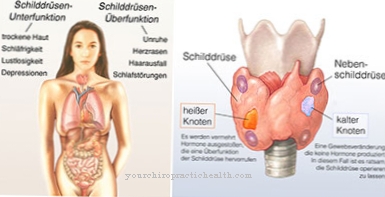
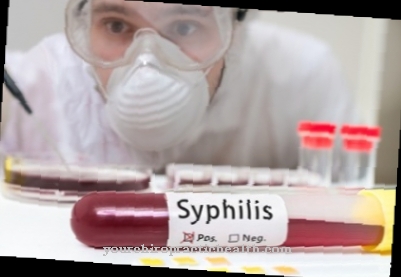





.jpg)




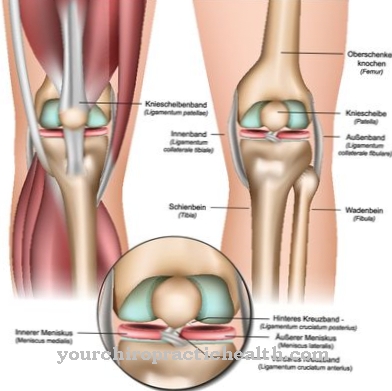
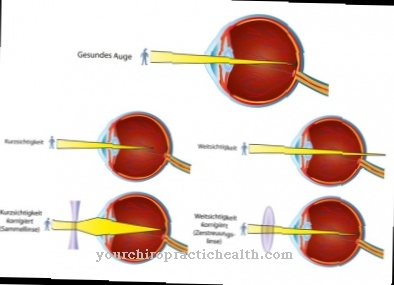
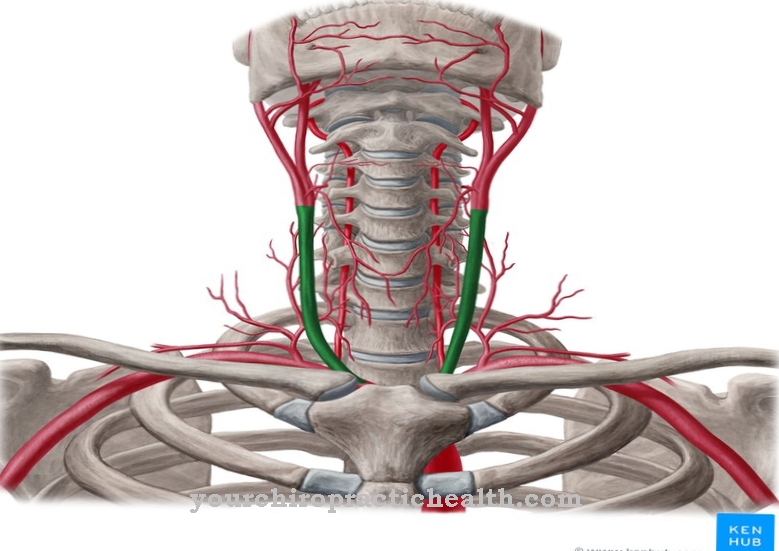
.jpg)

